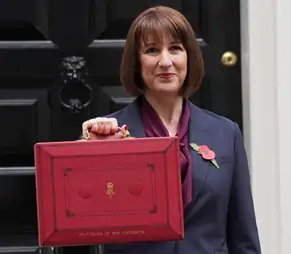
October 30th, 2024
The UK 2024 Autumn Budget was presented earlier today in the House of Commons.
Amongst the main headline news regarding taxes and national living wage, there were some key points which could affect contractors and freelancers moving forward, alongside those looking to take their next step on the property ladder.
Capital Gains Tax (CGT): Higher Rates for Higher Gains
One of the main topics we brought up in our pre-budget article was Capital Gains Tax, changes to which would have a knock-on effect on property investors and landlords.
Additionally, or those who invest in assets like shares, the increase in Capital Gains Tax may impact you. Starting now, higher-rate taxpayers will see CGT on such assets rise from 20% to 24%, while the rate for lower-rate taxpayers will increase from 10% to 18%. However, residential property CGT rates remain unchanged at 24% for higher earners and 18% for lower-rate taxpayers.
This will come as a relief to many property investors, as the amount of tax they pay for the time being will not be increased on their residential properties.
Although, investors in assets are met with a critical consideration for their financial planning.
Stamp Duty Changes: Higher Surcharges for Second Homes, but No Change in Thresholds
There were expectations that the stamp duty threshold would officially be lowered back down to £300,000. This was not touched upon in today’s budget, providing short-term rest bite to those looking to take their first step on the property ladder.
Instead, the budget shifted focus toward raising the stamp duty surcharge on second homes, which will now increase from 2% to 5%. This change could impact those who are considering purchasing a second property for rental income or as an investment asset.
Boost to Housebuilding: £5 Billion Investment
With Reeves’ commitment of £5 billion to housing, there’s hope that this could ease the pressure on property prices. As a contractor or freelancer, securing a mortgage often comes with additional hurdles, such as proving income stability.
Increasing the housing supply might lead to more competitive property prices, which could benefit those who are self-employed and looking to buy a first home. While it may take time to see the effects of this investment, it could be promising news for prospective homeowners.
National Insurance Hike: 15% Increase for Employers
The 15% rise in National Insurance (NI) contributions for employers will be felt throughout the self-employed sector, as many contractors and freelancers work closely with small to medium-sized businesses.
If you’re self-employed and managing a team, this hike could increase operational costs, putting pressure on the financial side of projects and overall profit margins. Freelancers contracted by small companies might also feel an indirect impact as businesses adjust to absorb these costs.
Support for Small and Medium Businesses: Employment Allowance Increase
On a more positive note, the Employment Allowance will increase from £5,000 to £10,500. This increase could alleviate some pressure for small business owners and contractors who operate as limited companies, helping to offset the NI hike.
The boost in the Employment Allowance should make it a little easier for smaller companies to hire and retain employees and contractors. If you run a limited company, this allowance could be a welcome financial cushion.
Rachel Reeves emphasised a commitment to expanding opportunities for SMEs.
As the self-employed are often closely tied to SME growth—whether as independent contractors, consultants, or freelance professionals—this could lead to increased work opportunities and financial incentives.
For contractors and freelancers, a government focus on SMEs could mean increased support, potentially translating into more accessible funding, simplified compliance, or better tax reliefs for growing businesses.
What’s Next?
While the 2024 Autumn Budget brings both opportunities and challenges, careful planning and adjustments to financial strategies can help self-employed professionals navigate the changes.
For contractors, freelancers, and the self-employed in particular, it may be beneficial to consult a financial advisor to explore ways to optimise tax positions or to consider any necessary changes in investment strategies.
Aspiring homeowners among this group should stay informed on upcoming developments in housebuilding projects to take advantage of potential opportunities in the housing market.
This budget underscores the importance of resilience and adaptability in managing finances, especially for contractors and freelancers who are often more exposed to economic changes. By understanding these budget implications, you can better prepare for the road ahead.



